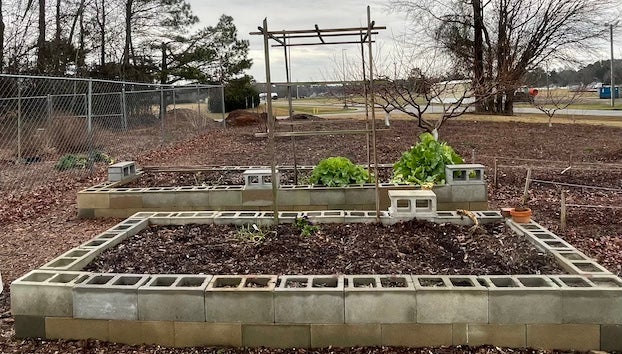What is the best mulch?
Published 12:30 pm Friday, February 10, 2023
|
Getting your Trinity Audio player ready...
|
I presented at the Kiwanis club this week and one of the questions was about Pre-emergent herbicides in vegetables. While this is a good idea, I asked why wouldn’t you just mulch? Mulching can achieve great results in regard to weed control without the hassle of having to calibrate a spreader, add the PRE, and then watering it in. Pre-emergent weed control doesn’t work without rain or irrigation to water it into the soil profile. The next logical question was “What’s the best mulch?”
I’ll begin by explaining why we use mulch because there are multiple benefits. Mulches block sunlight from the soil surface. Annual weeds need sunlight for germination, a layer of mulch will prevent annual weeds from germinating by cutting off the sunlight to the soil surface. Mulches help regulate soil temperature so that sensitive plant roots do not get too hot in the summer. They help to conserve moisture, protecting plants from drought as well. Run-off from rain is slowed, allowing water to percolate into the soil, which reduces erosion and aids plant growth. In the winter, a layer of mulch acts as a blanket across plant roots protecting them from freeze and thaw cycles. As organic mulch breaks down, it adds organic material to your soil, feeding soil microbes, releasing nutrients to plant roots, improving water-holding capacity and improving drainage in heavy clay soils. Lastly, mulch gives us a finished product in our landscape, improving the all-around appearance of a home, park, or business.
There are a wide variety of mulches available. Mulch is considered any material that can be placed on the soil surface to cover and protect it. There are colorful mulches, bark mulches, and pine straw to name a few. Commercial vegetable and nursery growers use plastic mulch to protect their soil and all but eliminate weed pressure. Playgrounds use bark mulches to prevent weeds, lessen compaction, soften the ground, and prevent erosion. Tomato growers can see an increase in production of up to 10% using red plastic mulch. The City of Washington will deliver leaf mulch to your home and shred it too.
So, what kind of mulch is the best? This is another one of those, “It depends on your situation” answers. If you like dark mulch; then pine bark might be the answer. If you have a history of fungus in your mulch, then pine bark or pine straw might work. If you do not have gutters around your home, then pine straw will help to dissipate some of the energy of the runoff from your roof without displacing your soil or plants in ornamental beds. Pine straw needs to be reapplied each year whereas pine bark and hardwood mulch will last for a few seasons. In your home garden, look for something that is going to decompose and build the soil. This could be leaf mulch that has been shredded or straw (as long as it is seed free). Try to stay away from pine straw because it will not break down as well. A little is going to be mixed in with the leaf mulch from the city but that’s okay. At the start of next season, just turn it into the soil to help add organic matter to the soil profile. This will enhance microbial activity and eventually release nutrients back into the soil to feed out plants.
Depth is more important than the type of mulch. Too much of a good thing can always turn bad and mulch is no different. When using hardwood or pine bark mulch, a two to four inch layer is perfect. When using pine straw, four to six inches is ideal because it will settle over time. In any case, no matter what type of mulch you are using, do not place mulch over a plant or up the trunk of a tree, mounding it up. This is called volcano mulch and it will encourage rot and/or insect damage at the base of the plant. Instead, leave a mulch-free ring a few inches from the base of trees and other plants. If in an ornamental bed with annuals, an inch of mulch is sufficient.
If you are having trouble with growing in your home landscape, call the Extension office at (252)946-0111 or email me at gene_fox@ncsu.edu. We’ve got some exciting stuff coming up! First, I want to announce our “What You Need To Know So You Can Grow” series. This will be every Friday in March from 9-11 a.m. The class will cover soils, fruits, vegetables, lawns, & ornamentals. Next, I want to announce that there is a pesticide school at the Vernon James Center in Plymouth on February 21-22, contact your local office for more information. Lastly, I will have a class for 3 credits (LDNX&O and Landscape Contractor’s credits applied for) at the Vernon James Center on February 27th from 9:00-12:00. Please call my office or visit our website for more details. Until then, Happy Gardening!






